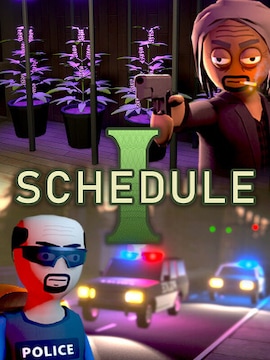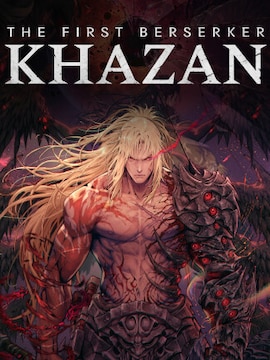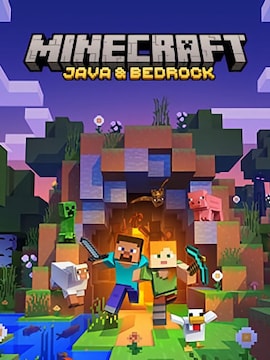Launched in 2007, the Mass Effect series captured the hearts and minds of millions of players.
Sitting comfortably between hard science fiction and space opera story about space magic and primordial existential threats, ME weaves its story with confidence and flair which made BioWare a household name. With four full releases to the series, it merits taking a look at all of them and see what each title has to offer as an experience.
Mass Effect
| Developer: | BioWare |
| Genre: | Adventure |
| Release date: | 2007 |
| Progression flexibility: | Medium |
There is no denying that Mass Effect changed the genre.
BioWare experimented outside of its usual comfort zone of fairly complex dialogue trees and tactical battles, and it took the world by storm. All action was viewed from a third-person perspective, and combat was much more action-oriented, with a cover system, active aiming for all weapons, and replacing any kind of turn system with ability cooldowns.
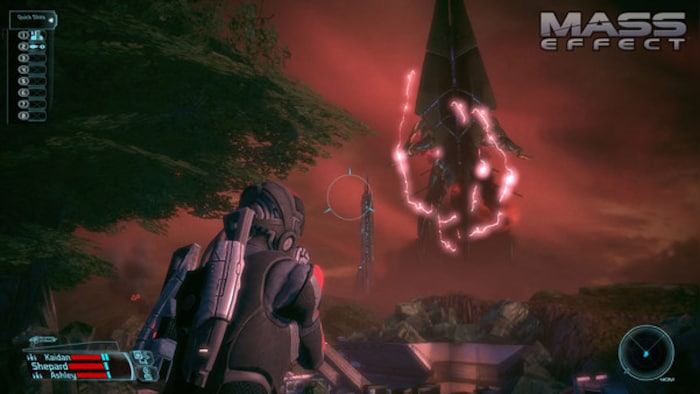
It was also the first game in BW portfolio which has proper science fiction trappings (as a Star Wars, KotOR doesn’t apply), with much of the world being defined by its access to a mass-defying Element Zero, which enables faster-than-light travel. Even the space magic (biotics) is given an in-universe scientific explanation.
Without spoiling too much, the story structure is going to be immediately familiar to anyone who played Neverwinter Nights or Knights of the Old Republic. While the story is rather simple, it is carried well by its protagonist, Commander Shepard, whose face, gender, and background we can customize at character creation. Both Shepard and their companions (of which there are 6 in total) can invest points into skills at level up, which increases the efficiency of the connected activity and can unlock special passive and active abilities after a sufficient number of points has been invested.
| Key features |
|---|
|
Mass Effect 2
| Developer: | BioWare |
| Genre: | RPG |
| Release date: | 2010-01-27 |
| Progression flexibility: | Low |
Where Mass Effect was a fairly standard, flowing BioWare story, Mass Effect 2 feels much more like an anthology of short stories connected by a common theme.
This is achieved by a strong focus on recruitment and loyalty missions for the companions who join Shepard’s crew.
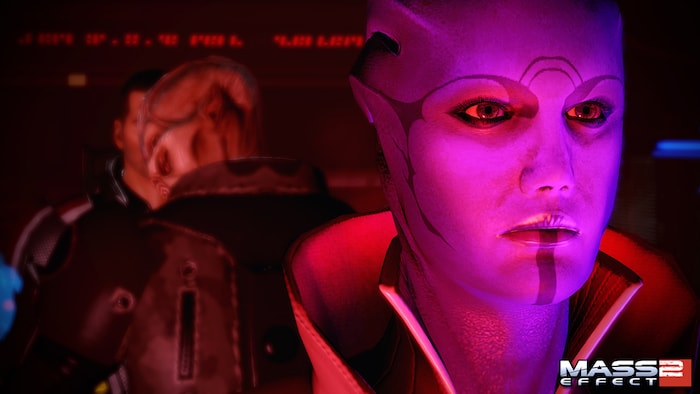
Each of those missions is unique and provides an intriguing look at the broader universe, and companions are a unique bunch of 10 characters (returning Garrus Vakarian and Tali Zorah), and three more available temporarily (returning Liara) and permanently (Zaeed and Kasumi) through DLC. Mechanically ME2 is much more streamlined than its predecessor. Multiple skill lines were replaced with power trees, and weapons can’t be modded anymore, although there were flat bonuses discovered during gameplay.
On the other hand, the effect of using combat, tech, or biotic powers are more pronounced and unique (with choices to be made there), and each gun feels substantially different from others. The Paragon/Renegade quasi-morality system was augmented with Interrupts, which allow Shepard to make snap reactions to events even when the other side is talking or doing something during dialogues. They include pushing someone through a broken window or blowing up a leaking gas pipe mid-antagonist monologue.
| Key features |
|---|
|
Mass Effect 3
| Developer: | BioWare Edmonton |
| Genre: | RPG |
| Release date: | 2012-03-06 |
| Progression flexibility: | Low |
Mass Effect 3 was the final push against the Reapers, starting with a bang, and then the tension kept rising until the final battle and the final decision.
In the third game of the series Shepard needs to gather war assets for the creation of the secret weapon against the Reapers, which forces the Commander to travel around the galaxy addressing crises and rescuing allies. This is the game where choices made in the previous two entries carry weight and can influence the outcome for good or ill.
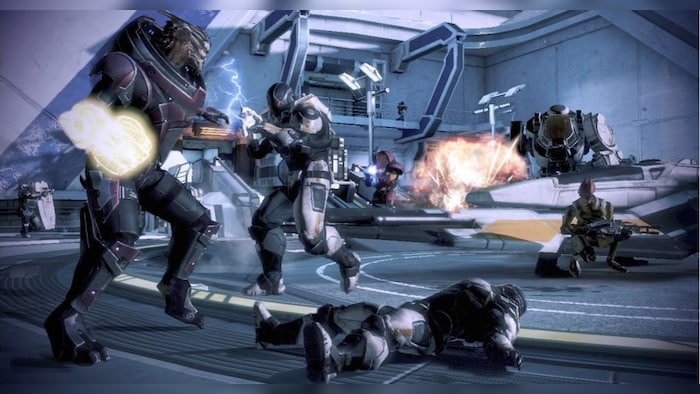
ME3 is quite similar to ME2 in terms of character progression (but guns can be more customized this time), and focuses on taking Shepard from one crucial mission to the next. With the Citadel DLC and the Extended Cut version of the final act of the game, Mass Effect 3 is a suitable conclusion of the three games-long journey, closing lingering story arcs, ending the war (one way or another), and letting you say goodbye to most characters you may have grown fond of.
| Key features |
|---|
|
Mass Effect Andromeda
| Developer: | BioWare Montréal |
| Genre: | Adventure |
| Release date: | 2017-03-23 |
Mass Effect Andromeda was rather divisive at launch, with quickly patched animation problems leading the charge of criticism.
This terrible launch and reduced post-launch support pushed the game into relative obscurity, even though it did some cool things.
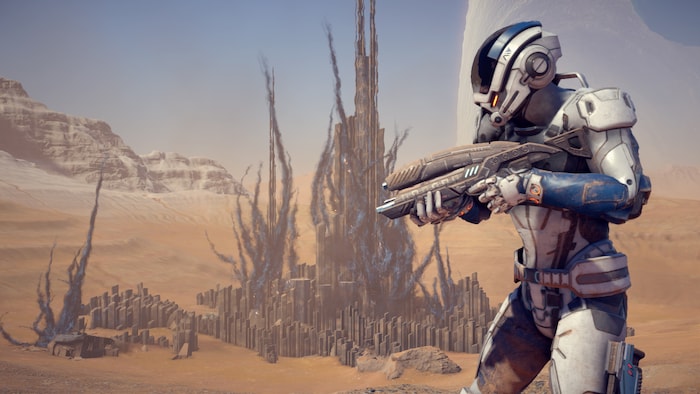
600 years after the events of the original trilogy an expedition sent to the Andromeda galaxy between ME2 and ME3 finally reaches its goal, but nothing goes as expected. In addition having to navigate a wholly alien socio-political environment, the players get a crisp combat system with a degree of verticality provided by jetpacks, as well as a flexible and easy to reshuffle character progression.
| Key features |
|---|
|
Synthesis
The impact of Mass Effect reverberates across all story-heavy action-RPGs. The success of this form of presentation changed the conversation system in Dragon Age from DA2 onwards, and can even be seen to an extent in The Witcher series. If you love action role-playing games, you shouldn’t miss this series.

